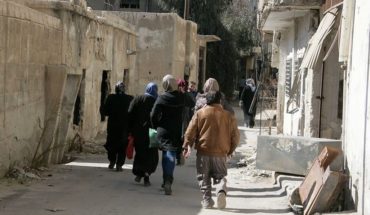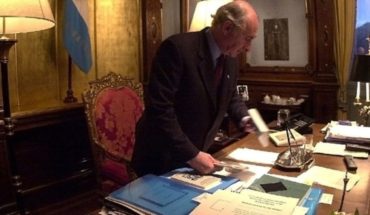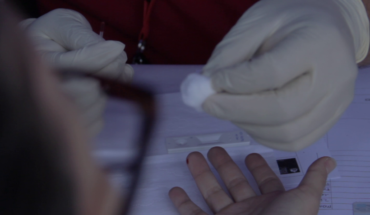Submitted by:
Good and happy Monday! Today I want to start with the political and financial crisis facing the United Kingdom.
The reason? It is a spectacular example of how markets have become a true counterpart/power that has the ability to challenge sovereignties and democracies – with all the good and bad that implies. The British crisis is also a clear example of how markets discipline politics and that they are not ideological.
What happened?. 6 weeks ago, Liz Truss was chosen by the Conservative Party to replace Prime Minister Boris Johnson. It came with a neoliberal agenda and promises of steep tax cuts. Two weeks ago, his finance minister, Kwasi Kwarteng, announced a mini-budget that included promised tax cuts. The problem is that it did not include spending cuts. On the contrary, there are additional expenses, which many considered “populist”.
The result? Chaotic reaction in the markets and that threatened the viability of pension funds, forcing the Bank of England (central bank) to intervene, in addition to the collapse of the pound sterling and with the historical credibility of the British economy collapsed. Not to mention the rise in mortgage and consumer loan rates, something we already know about here. Within 10 days they ousted Minister Kwarteng and the prime minister is reeling. At the close of this note he was not given more than a month. The market spoke and policy had to be aligned.
Is it fair? Probably not. The power of capital to challenge politics is something not to be taken lightly. And it’s not just happening in the UK. In 2023 we will live that tension here in Chile. Markets tend to reward those who do things right and overpunish those who do them badly. And yes, it is not something academic, it affects us all.
Before we begin with what summons us, I want to invite you to share or join El Semanal, and El Semanal Exprés, so that our community continues to grow. Subscribe to or share this newsletter.
1
1- INFLATION AND PANDEMIC, A LETHAL COMBINATION FOR THE MOST VULNERABLE
Why talk about poverty in Chile? This week the United Nations Development Programme (UNDP) will publish a new report on Chile (to which we had early access), in which it recognizes the enormous progress made over the past 30 years. However, it warns that both the crisis caused by the pandemic and the recent inflationary escalation have affected a group of the population that far exceeds those considered poor in terms of income and that includes segments considered middle class. The study points out that these families have few tools to face this complex scenario.
The UNDP document highlights that Chile has made significant progress at the institutional, economic and social levels, which has made it possible to improve the levels of well-being of the population and significantly increase the human development of those living in the country.
“Since 1990, and in the international comparisons made by the World Bank, Chile exhibits a poverty rate similar to that of high-income countries, far from the average presented by Latin America and the Caribbean and very far from realities such as that faced by the Sub-Saharan Africa region.”
The report highlights that economic growth has made Chilean society have a considerable Human Development Index (HDI) and qualified as “very high” in UNDP global measurements and publications, with outstanding achievements in poverty reduction, strengthening of its institutions and, ultimately, a significant improvement in the living conditions of its population.
The growth of the economy has been a fundamental factor in the reduction of poverty, due to its contribution to job creation and the increase in wages, as well as the increase in social spending that more than tripled during the years 1990 and 2015, details the report.
But inequality remains a problem: UNDP paper says gaps persist
social that go beyond income. The report emphasizes that a large percentage of the population lives with a vulnerability marked by economic insecurity and lack of capacities to better cope with this type of shock.
He warns that, despite being an upper-middle-income country, in Chile there are people and households that still face social deprivation. And add that you manifestso in areas such as health, education, work, housing or mental health.
The challenges: that the benefits of development reach all its population in an inclusive and sustainable way.
“Poverty is not only an economic or material issue, it is a complex and multidimensional phenomenon, which implies both the scarcity of income, the lack of human development and social exclusion. In this sense, poverty can be understood as the deprivation of basic capabilities or real opportunities that people have at their disposal to develop their lives.”
If you want to read the full report, subscribe to El Mostrador Semanal and join our community.
2
2- A GLOBAL ECONOMY IN CHAOS AND CHILE IN THE MIDDLE
The global economy is in chaos and there is no one to come to the rescue. It is one of the conclusions emerging from the annual meetings of the International Monetary Fund and the World Bank, which ended this weekend in Washington, where the world’s most influential finance ministers and bankers said they were present, along with the CEOs of the world’s leading private banks. The meetings were attended by the Minister of Finance, Mario Marcel; the president of the Central Bank, Rosanna Costa; and the vice president of the issuing entity, Pablo García.
Chaos is not good for Chile and the ambitions of Gabriel Boric’s government. There is consensus, here and among the leading economists who were in Washington, that we are entering one of the most complex moments for the world economy in years. High inflation, low or no growth, interest rates that have companies struggling to finance their growth, an energy crisis increasingly similar to that of the 70s, volatile markets and a war in the heart of Europe.
And to that we must add the self-inflicted wounds of the local economy: AFP withdrawals, political uncertainties and an investment that does not grow in 10 years. And this is the scenario in which the largest tax reform in Chile’s modern history is being debated, as well as the protocols to write a new Constitution and a pension reform that the country has been crying out for at least 15 years, but that will not be easy for the Government to bring to fruition.
Want more bad news? Unlike the 2008 crisis, the 2001 crisis and the Asian crisis of 1998, the Chilean treasury has far fewer tools. Sovereign wealth funds are less than half of 10 years ago (outbreak and pandemic), the country has less capacity to borrow and the Central Bank has less flexibility, given that it has fewer reserves, must control unanchored inflation and contain the volatility of the peso against a skyrocketing dollar.
If you want to read the full article, subscribe to El Mostrador Semanal and join our community.
3
3- GREEN IS GOOD AND INCREASINGLY PROFITABLE
What happened?. Evidence continues to mount that the energy revolution not only makes sense for the planet but also generates economic benefits. A new report from the International Energy Agency (IEA) shows that there are now more people employed in clean energy (defined as renewable energy, electric vehicles, energy efficiency measures and nuclear power) than in the fossil fuel industry (oil, gas, coal, etc., etc., etc.).
The science is already overwhelming that the world can achieve a 100% renewable energy system by 2050 or sooner. Investment in clean energy has grown by 12% annually since 2020, partly due to increased public and private support for sustainable finance, especially in rich countries. Renewable energy, new grids and energy storage account for more than 80% of total electricity sector investment. The IEA report estimates that spending on solar, batteries and electric vehicles is now growing at a consistent pace so that global net zero emissions can be reached by 2050.
If you want to read the full article, subscribe to El Mostrador Semanal and join our community.
4
4- CHART OF THE WEEK: CHAO CASH
Goodbye to sweet silver (cheap). Last week we talked about the collapse of savings in Chile and today we tell you how liquidity has plummeted globally. The economist Juan Santa María made an analysis that he published on his Twitter account and in which he warns that this change of scenario will have a strong impact on global markets.
The graph reflects the amount of money circulating in the world this year and how it is already projected to continue to fall further in 2023 (M2 money supply is cash, checks, term deposits, and money in money markets, i.e. very liquid assets).
If you want to read the full analysis, subscribe to El Mostrador Semanal and join our communityd.
A message from the AFP Association
For more information click on the image
2022: AFPs have lost USD 160 million due to fall in the profitability of multi-funds
The reserve requirement is the percentage that reserve managers must maintain by obligation, which is equivalent to 1% of the affiliates’ funds.
Thus, the investments of the affiliates are aligned with the reserve of the AFPs, which produces a virtuous convergence of interests, which benefits savings for pensions.
The drop in the value of investments and the consequent fall in the profitability of multi-funds has a direct impact on the AFPs, which to date record losses in real terms of USD 160 million.
Full information can be found at this link or by clicking on the image.
5
5- SUSAN SEGAL, SYMBOL OF U.S. SOFT POWER, BACK IN CHILE
Click on the image to see the full interview
Susan Segal, president of the Council of the Americas: “This is just another chapter in Chile’s history and I see it as a great opportunity”
The president and CEO of Americas Society/Council of the Americas, returns to Chile after 3 years (blame the pandemic) to host another edition of the Cities Conference, the traditional business meeting organized in partnership with the Ministry of Finance.
This week she was the guest of La Mesa de El Mostrador, where we talked about the new political cycle that Chile is experiencing: “There was a crisis and Chile solved it with institutional solidity. It is a spectacular example for the region.”
The event next Thursday will be attended by the Ministers of Finance, Mario Marcel, of Economy, Nicolás Grau, and of Energy, Diego Pardow.
Also present: Jorge Arbache, vice president of the Development Bank of Latin America (CAF); Doron Avni, Director of Corporate Affairs for Emerging Markets, Google; Rosaline Corinthien, CEO, Engie Energía Chile; Javier Dib, CEO of AES Andes; Gonzalo Gebara, CEO of WalMart Chile; and Alberto Vignau, general manager of Uber for the Southern Cone.
Among the topics to be discussed at the conference are Chile’s economic prospects and the sustainable growth agenda amid a challenging global scenario.
In addition, the program will include discussions on the tax reform bills presented by the administration of President Gabriel Boric, which aim to promote investment, productivity and innovation in the country.
To view the full interview, click on this link or the image.
6
6- NO HEELS OR TIES
– Everything indicates that the parties are approaching to close an agreement on the mining royalty. Pulso reported this weekend that the Treasury and the mining companies have made important advances that would have the OK of key legislators. According to the report, there would already be an agreement on the structure to be applied for the ad valorem (value of the extracted ore) and operating margin components.
The Treasury will make indications the week that starts. The obstacles: the amount of collection and how to avoid the deterioration of the mining competitiveness of Chile versus countries such as Peru, Canada and Australia.
If you want to read the full article, subscribe to El Mostrador Semanal and join our community.
– Pizzas vs. Perfumes and Cosmetics. Businessmen Jaime Sinay and Felipe Israel – known in the market as the ISSI group, which has the representation of Domino Pizza in Chile, own the Palumbo hairdressers and the 5àsec laundry chain – are embroiled in a conflict with the founder of the failed The Republic of Beauty, Jaime Ben-Dov, with whom they partnered in 2016.
What is the fight. Those who own the pizzas and hairdressers lost an arbitration lawsuit for not wanting to pay Ben-Dov a PUT (promise to purchase) of $ 2.175 million, which they agreed when they entered the ownership of the chain of cosmetic and beauty items. Sinay and Israel have resorted to various judicial remedies to avoid paying and ignoring the arbitrator’s decision, and have lost in all instances, including the Courts of Appeals and Supreme Court.
If you want to keep reading, subscribe to El Mostrador Semanal and join our community.
– Argentina, inflation and the 14 exchange rates. That’s right, there are 14 different “dollars” and inflation is right to close the year above 100% per year. The economic crisis dominated the IDEA Colloquium, the business meeting equivalent to our ICARE.
The event was closed by President Alberto Fernández on Friday, two hours after it was known that the monthly CPI in Argentina was 6.2% in September and year-on-year inflation reached 83%. In sectors protected by its “industrial policy”, such as clothing and textiles, the increase is 118% (thanks to Rodrigo Cárdenas).
Irony or forDoja. That same day we learned that the Undersecretary of International Economic Relations, José Miguel Ahumada, revealed that he is working for a regional industrial policy with Argentina and Bolivia to “climb the lithium value chain.” For The Economist, Sergio Massa, the economy minister, is the only thing standing between Argentina and chaos.
7
7- AGENDA OF THE WEEK
– The third quarter earnings season starts to full. The most important companies on Wall Street and those of the Chilean Stock Exchange begin to publish the results of the third quarter. The big question: signals about whether the recession is already being felt in the business of the real economy.
In the United States, the Federal Reserve is trying to design a soft landing for the economy, and the third-quarter results will paint a picture of how businesses are handling it so far.
In Chile, the signs are strong that the economy is cooling and that should be reflected in the results. The exceptions: banking.
China’s most powerful man since Mao: Xi Jinping is on the verge of total power. Unless something unexpected happens, he will succeed this week during the XX Congress of the Communist Party of China. As we anticipated during the week in El Semanal Exprés, it started this Sunday and the focus will be on whether Xi Jinping is indeed elected for a third term, which would mean a fundamental transformation of the Chinese political system that has been in force since 1989.
The Chinese leader is skeptical of the capitalist advance in the country and seeks to counteract the ideological corrosion resulting from the penetration of consumerism and the growth of inequality, through the development of an integrative and nationalist discourse, which manages to disarm the underlying social tensions. In his opening speech, Jinping celebrated the crushing of Hong Kong’s autonomy and warned Taiwan that the “wheels of history” are turning toward Beijing taking control of the island.
PRESENTATIONS AND DATA
Monday: The president of the Central Bank of Chile, Rosanna Costa, participates in a meeting organized by the Consultative Council for the Americas (CEC) of the BIS, in conjunction with the Federal Reserve of New York, in the context of the annual meetings of the IMF and the World Bank.
Also on Monday, the Central Bank will publish the indicators of the Weekly Situation.
Friday: The Vice President of the Central Bank of Chile, Pablo García, presents, via teleconference, on “Macroeconomic Vision of the Real Estate Sector” in the seminar “Real Estate Sector: Perspectives and Challenges”, organized by the Business School of the Adolfo Ibáñez University (UAI), the Association of Real Estate Developers (ADI) and the Association of Banks and Financial Institutions of Chile (ABIF).
8
8- “THE HAND OF GOD” GOES TO AUCTION
Source: Getty Images / Instagram
The ball Diego Maradona used to score his “Hand of God” goal against England in the 1986 World Cup will go to auction. It will be next month and, according to The Guardian, it is estimated that it will receive offers for around US $ 3 million.
Maradona used his hand in a way that looked like a headed goal to open the scoring in the quarterfinals at the Estadio Azteca in Mexico City. If that goal was controversial, the second is considered a masterpiece. Argentina ended up being champions.
The owner of the ball? Referee Ali Bin Nasser, who did not see the hand. The Tunisian said he feels it’s the right time to share the item with the world (and earn a few luquitas?) and expressed hope that the buyer would display it publicly.
Well, you know, if you’re a football fan and you have $3 million going around there, this auction is a great opportunity. I can think of Jorge Yarur Bascuñán as a potential buyer for his Fashion Museum.
Submitted by:
That’s as far as we come this week. Before closing, remember that if you have any comments or information to share with us, write to me at ivan@elmostrador.cl or on my networks.





